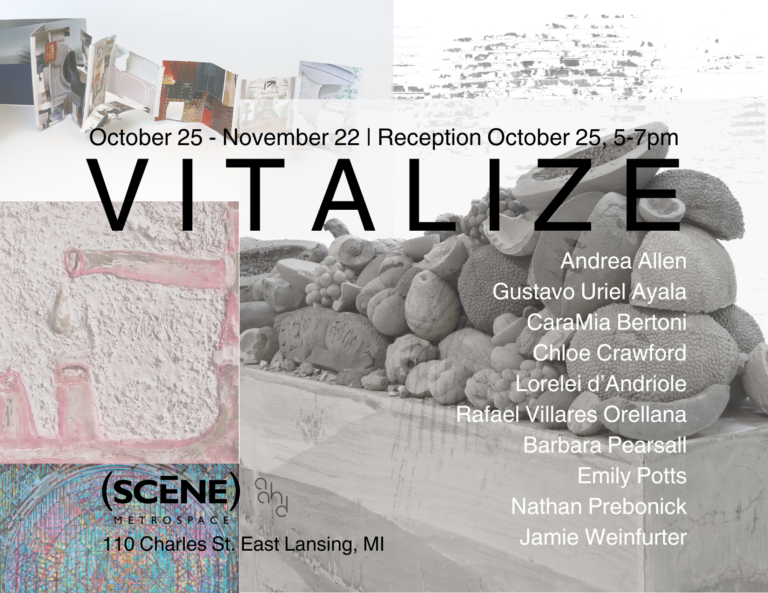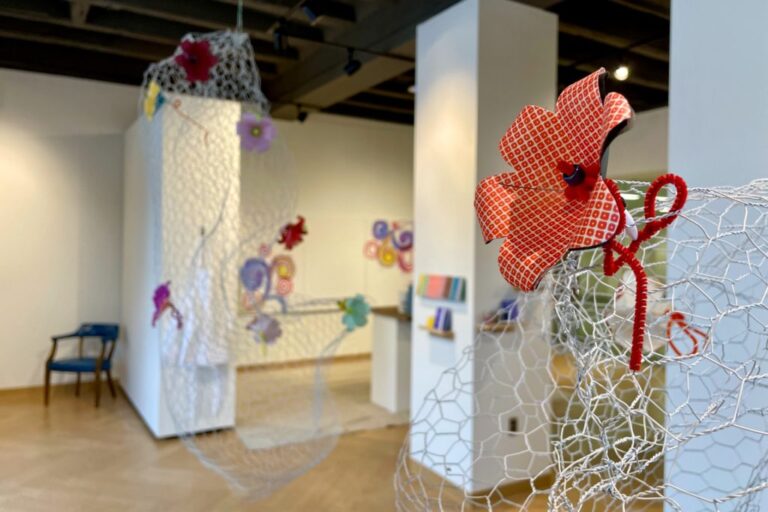Karin Zitzewitz, Associate Professor of Art History and Visual Culture, has been awarded a Humboldt Research Fellowship for Experienced Researchers, a competitive and prestigious award that gives scholars from around the world the opportunity to travel to Germany for extended periods of time to do research.
As part of the fellowship, Zitzewitz will learn to speak German and will spend the upcoming academic year at the Karl Jaspers Centre for Advanced Transcultural Studies at the University of Heidelberg, Germany, where she will work on her next book, which focuses on the rapid formal and institutional changes in contemporary art in India and Pakistan from 1991 to 2008, or the period from the liberalization of the Indian economy to the global financial crisis.
It will be among the first books on Indian and Pakistani contemporary art published by an academic press in the United States.
“The field of contemporary Indian art research in the United States is extremely new, offering an unusual opportunity for truly groundbreaking scholarship and to provide a strong foundation for further research,” Zitzewitz said. “The book I propose to write during the fellowship will be a substantial contribution to my primary fields of South Asian modern art history and South Asian studies, particularly because its transnational focus is so unusual in those fields.”

Five Years of Research
Zitzewitz has been doing research for the book for the past five years.
“What I am looking at is the effects of the opening of the Indian economy to outside foreign investment in 1991 and the way that transformed the infrastructural basis for contemporary art, by which I mean everything from the materials available and the economic shifts that allowed for the development of a robust art market,” Zitzewitz said.
That period saw rapid changes in the form of art and in art institutions, which was largely due to the influx of Internet companies during the dot-com boom.
“Most of the changes were about the expansion of thought and the expansion of creativity. People started to work in this new form and that radically changed art,” Zitzewitz said. “I did the research for my first book during this period and so I witnessed a lot of these events, but I wasn’t really tracking it in a serious way. So what I am doing is going back and looking closely at that period of change.”
Zitzewitz is ultimately interested in figuring out ways for people to understand this period of art, both in its own terms and in terms that enlarge the conversation about modern and contemporary art in general.
There have been a lot of great MSU experiences that have prepared me to apply for the Humboldt fellowship.
Karin Zitzewitz
“The idea is not to create a separate stream of Asian contemporary art studies, but to think about the way that both modern and contemporary art have always been about the kind of movement of artists and art ideas around the world on equal footing,” Zitzewitz said. “I’m hoping that what we can do is start to have rigorously documented and imaginatively thought through frameworks for this period of contemporary art history. Things happened really quickly, and it wasn’t that long ago. It’s time to look back and see what was really going on.”
This will be Zitzewitz’s second book. The first, The Art of Secularism: The Cultural Politics of Modernist Art in Contemporary India, was published in 2014 and tracks how the rise of Hindu nationalist politics affected the practices of four modernist artists and the character of art world spaces.
Her current research compliments that first book in that both look at the transformational decade of the 1990s.
“Unlike my first book, this project is aimed squarely at the broader art historical audience concerned with global contemporary art and looks closely at the effects on art of the contemporaneous integration of India into the world economy,” Zitzewitz said.
With her current project, Zitzewitz will explore the way in which art depends upon economic feasibility and massive structural changes, like the spread of the Internet.
“The Internet is a visual medium and so it’s been incredibly important in allowing people to see artistic work,” Zitzewitz said. “What we have seen is a slow but sure democratization of knowledge about art, and that has had a profound impact on the art scene throughout the world.”
Impacting the Art World
From this project, a large archive of contemporary art images has been created, which is hosted by the Visual Resources Library in MSU’s Department of Art, Art History, and Design and accessible to members of the University community.
Most of the changes were about the expansion of thought and the expansion of creativity.
Karin Zitzewitz
Zitzewitz’s research also has had an impact with museums around the world that are increasingly interested in showing this type of art in an intelligent way.
“Through my research, I have been able to substantially shape the discourse of South Asian contemporary art in the United States and the UK by doing a series of programs with major museums, like MoMA (Museum of Modern Art in New York City) and the Tate (in the United Kingdom),” Zitzewitz said. “That is enormously gratifying, but also helps to ensure the scholarly basis for exhibitions. There are a lot of resources that go into an exhibition and so it is really important to get it right, and I am proud to be able to help.”
Why Study Asia in Germany?
While at the University of Heidelberg, Zitzewitz will work with Monica Juneja, Chair of Global Art History at the University of Heidelberg, and with graduate students and junior faculty at the Karl Jaspers Centre for Advanced Transcultural Studies, who are working on similar topics in different areas of the world or within different periods in India.
“Most people who go on Humboldts in the humanities are scholars of German and so it’s unusual to go and study Asia,” Zitzewitz said. “However, I will be writing the book with this group of people at the centre who also are engaged in the study of transcultural processes. It’s really a suitable environment for crafting my book.”
The Karl Jaspers Centre for Advanced Transcultural Studies has played a crucial role in building the field in Europe and is one of the leading places in Germany to study the relationship between Asia and Europe.
“I am absolutely delighted to have this opportunity and to be able to build a relationship with the centre at Heidelberg because it’s not just about the project, it’s also about developing partnerships and having the exposure to colleagues in Europe,” Zitzewitz said. “I’m also grateful to have the support of the College and my colleagues in the department, allowing me to take advantage of this opportunity.”
Benefits Gained from MSU
Zitzewitz began working at Michigan State University in the Department of Art, Art History, and Design in January 2009. She credits the University with offering her many opportunities in support of her research, including receiving a HARP (Humanities and Arts Research Program) grant as well as funding from the Dr. Delia Koo endowment, which is administered by MSU’s Asian Studies Center, and from the Muslim Studies Program.
“There have been a lot of great MSU experiences that have prepared me to apply for the Humboldt fellowship,” Zitzewitz said. “This is a great place to do research on Asia. Those doing the research are sprinkled throughout the University and we all know each other, so there is a lot of movement across disciplines, which is very beneficial. There also are enormous amounts of support for faculty research.”
Zitzewitz recently traveled to South Korea to present a section of the first chapter of her book. Sponsored by the Tate Research Project in Asia at the Korean Museum for Modern and Contemporary Art (MMCA), the program was on Asian art after 1989 and attended by other researchers, art historians, curators, and some of the most important artists from the period from the area.
Under the Humboldt Fellowship, Zitzewitz will travel to Germany in August and stay through June 2018.


